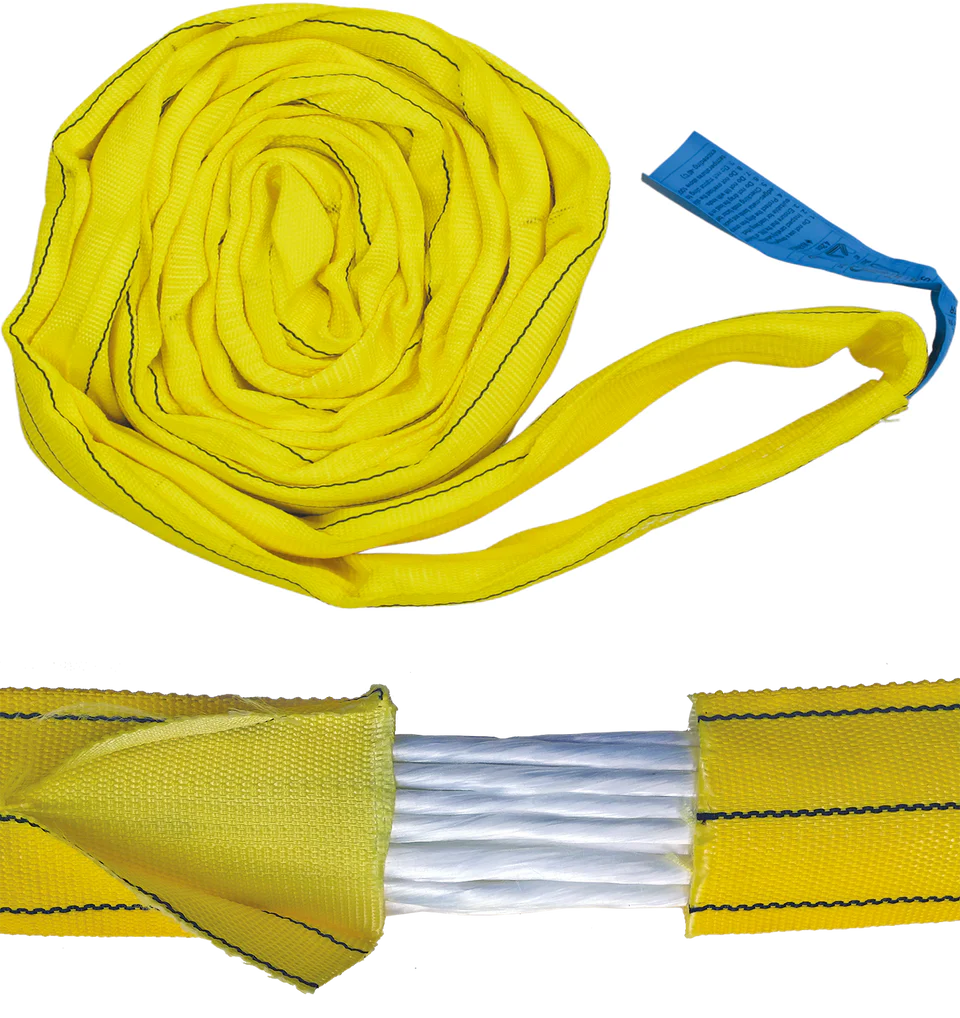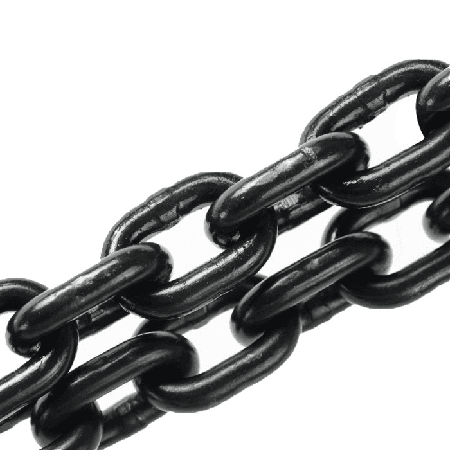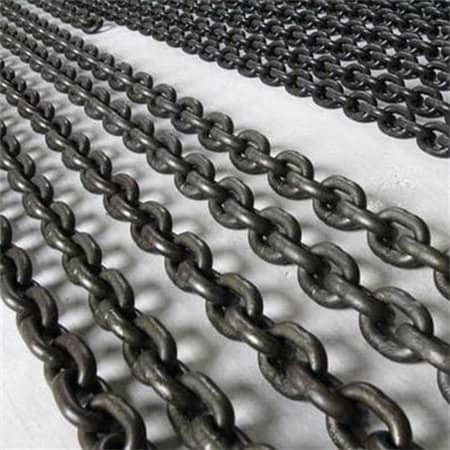Flat webbing Slings vs. Round Slings: Key Differences, Similarities, and How to Choose the Right One
In the lifting industry, flat webbing slings and round slings are two common and widely used lifting tools. While both provide strong support during lifting operations, each has unique features and applications.
Similarities Between Lifting Webbing Slings and Round Slings

1. Materials and Durability
Both lifting webbing slings and round slings are typically made from high-strength synthetic fibers, such as polyester (PET). These materials are known for their excellent tensile strength and wear resistance.
2. Flexibility and Versatility
Flat webbing slings and round slings both exhibit excellent flexibility, making them suitable for lifting loads of various shapes and sizes. This flexibility allows them to distribute the load evenly, reducing potential damage to the load.
3. Lightweight
Both lifting webbing slings and round slings are relatively lightweight, which makes them easy for operators to handle and use. Compared to steel ropes or chain lifting tools, lifting slings and round slings significantly reduce the physical strain on operators, improving efficiency during operations.
Differences Between Lifting Webbing Slings and Round Slings
| Differences | Webbing Slings | Round Slings |
| Design Structure | Typically a flat fabric strap with a wide surface, suitable for large-area loads | Usually circular or looped in shape, with a simple design, ideal for compact loads |
| Load Capacity&Application | Generally has a higher load capacity, suitable for lifting large-area loads | Lower load capacity, best for small or irregularly shaped loads |
| Lifting Methods | Suitable for horizontal, vertical, and angled lifting | Mainly used for vertical lifting, securing both ends of the load |
How to Choose the Right Lifting Tool?
Load Type – Use lifting slings for large, flat loads and round slings for compact or irregularly shaped loads.
Work Environment – Choose materials resistant to UV, chemicals, or extreme temperatures based on the working conditions.
Lifting Method – Lifting slings support multiple lifting methods, while round slings are best for vertical lifting.
Budget – Lifting slings are costlier but more durable; round slings are more economical for simpler tasks.
Conclusion
Lifting webbing slings and round slings each has unique advantages. Flat webbing slings offer higher load capacity and versatility, while round slings are more flexible and cost-effective for irregular loads. Choosing the right lifting tool depends on load type, lifting method, work environment, and budget. Selecting the right sling enhances safety, efficiency, and durability in lifting operations.


